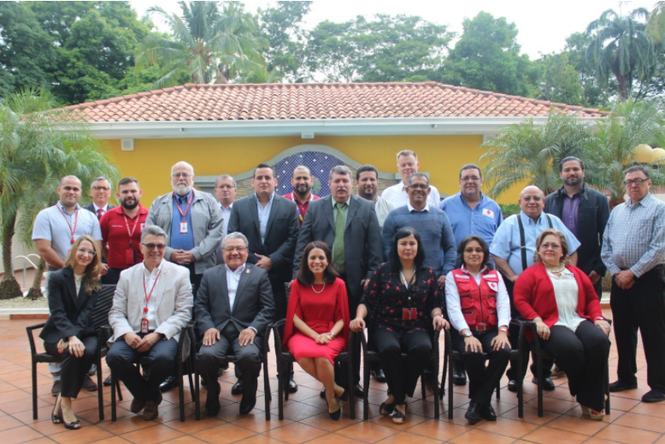
National Societies across Central America have come together, with the support of their disaster law and advocacy focal points, to deepen their commitment to strengthening their auxiliary role though advocacy.
“It is only through the recognition of advocacy and humanitarian diplomacy as an integral part of the daily work of National Societies and the International Federation, that humanitarian objectives can be effectively achieved”, stated Walter Cotte, The IFRC Americas Regional Director.
Meeting in Panama City for their annual regional meeting, the National Societies discussed how to effectively advocate for stronger policies and legislation on important humanitarian topics. During the three-day event, National Societies were invited to identify and analyse the national laws where their auxiliary and humanitarian role is recognized, such as health and disaster management laws, and to what extent their auxiliary role in these laws could be expanded in support to national authorities.
Central American National Societies have also worked on establishing multi-disciplinary advocacy groups, which they have committed to put in place by the end of 2017. Key areas of priority for the National Society advocacy groups include disaster law, legislative advocacy and the auxiliary role
“The first task of the advocacy group of Honduras Red Cross will be to implement the recommendations of the country’s IDRL study” highlighted Oscar Fernández, Disaster Law focal point for Honduras Red Cross.
The workshop also provided advocacy training to enable National Societies to integrate advocacy and humanitarian diplomacy into their operational plans. In addition, the participants created a National Society humanitarian diplomacy virtual group to exchange best practices, lessons learned and promote peer-to-peer support.
The establishment of these groups in Central America marks a significant step towards undertaking disaster law and legislative advocacy work in a more systematized and consolidated way, and serves as a model for other regions.